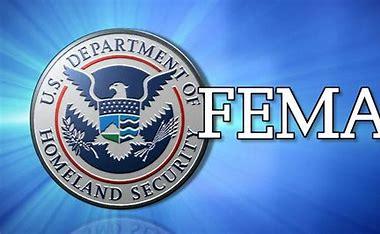How to Apply for FEMA Assistance Following May 21-27 Severe Weather
FRANKFORT, KY. — Kentucky homeowners and renters in Butler, Caldwell, Calloway, Christian, Clay, Greenup, Hopkins, Knox, Logan, Muhlenberg, Simpson, Todd, Trigg, Warren and Whitley counties who experienced damage or losses caused by the May 21-27 severe storms, straight-line winds, tornadoes, landslides and mudslides may apply for FEMA disaster assistance. How to Apply for FEMA Assistance There are several ways to apply: Go online to DisasterAssistance.gov, call 800-621-3362 from 7 a.m. to midnight local time every day, or use the FEMA mobile app. If you use a relay service such as Video Relay Service (VRS), captioned telephone service or others, give FEMA your number for that service. When you apply for assistance, please have the following information ready:
A current phone number where you can be contacted;
Your address at the time of the disaster and the address where you are now staying;
Your Social Security Number;
A general list of damage and losses;
Banking information if you choose direct deposit.
If insured, the policy number or the agent and/or the company name;
Residents should file insurance claims as soon as possible. FEMA cannot duplicate benefits for losses covered by insurance. If the insurance policy does not cover all disaster expenses, policy holders may be eligible for federal assistance. Take photos to document damage and begin cleanup and repairs to prevent further damage. Remember to keep receipts from all purchases related to any cleanup and repair.
For accessible information about how to apply for FEMA disaster assistance, please check the YouTube link.
What FEMA Assistance May Cover Housing Assistance may include:
Money for temporary housing while you are unable to live in your home, such as rental assistance or reimbursement for hotel costs
A temporary housing unit, if approved for the disaster, when you are not able to use rental assistance due to a lack of available housing resources.
Money to help eligible homeowners support the repair or replacement of owner-occupied homes that serve as the household’s primary residence, including privately-owned access routes, such as driveways, roads, or bridges. Eligible repairs are intended to make the home safe to live in and may not restore the home to its predisaster state.
Money for specific hazard mitigation measures to help eligible homeowners repair or rebuild stronger. Other Needs Assistance may include funds for:
Seriously needed expenses related to a disaster, such as food, water, baby formula and other emergency supplies.
Immediate housing needs if unable to return home (e.g., money can be used to stay in a hotel, with family and friends, or other options while looking for a rental unit).
Damaged essential household items (room furnishings, appliances), clothing, clean-up items (wet/dry vacuum, dehumidifier), tools and specialized clothing required for your job, necessary educational materials (computers, schoolbooks, supplies), and certain accessibility items.
Damage to an essential vehicle.
Disaster-related funeral and burial expenses.
Disaster-related child-care expenses.
Disaster-related medical and dental expenses, to include injury or illness, loss of medical equipment, such as breast-feeding equipment, and disability-related expenses, such as the loss or injury of a service animal. Moving and storage expenses, to include the moving and storage of essential household goods to prevent further damage and returning the goods to your primary residence or moving to a new primary residence following disaster damage).
For the latest information on Kentucky’s recovery from the May 21-27 severe storms, straight-line winds, tornadoes, landslides and mudslides, please visit fema.gov/disaster/4804. Follow FEMA on X, formerly called Twitter, at twitter.com/femaregion4 and at facebook.com/fema. ### FEMA’s mission is helping people before, during and after disasters. All FEMA disaster assistance will be provided without discrimination on the grounds of race, color, sex (including sexual harassment), sexual orientation, religion, national origin, age, disability, limited English proficiency, or economic status. If you believe your civil rights are being violated, you can call the Civil Rights Resource line at 833-285-7448.






























